Table of Contents Show
We hear this question often. And often, people ignore the answer.
Why?
Although dangerous, it’s unlikely that anything will happen if you run your RV fridge while driving. Therefore, many RVers still do it, but is it worth the risk?
Let’s dive in and take a closer look at why this is a problem.
Is It Dangerous to Drive with Your RV Fridge On?
It depends on the type of RV refrigerator you have. The only one that matters when answering this question is a 3-way RV fridge. It can use propane as an energy source, which poses risks when driving.
So, yes, it can be dangerous to drive with your RV fridge on.
Pro Tip: Check out our article Should You Travel with Your RV Propane Tanks Open or Closed to learn more about propane safety while traveling with an RV.
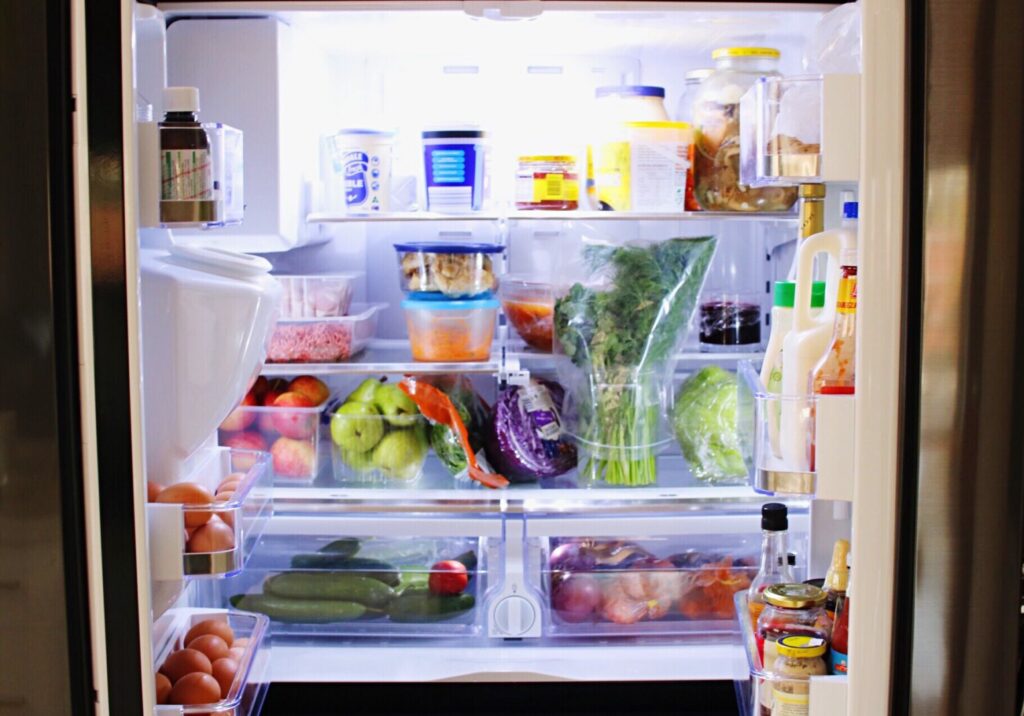
Types of RV Refrigerators
There are two main types of RV refrigerators. Smaller campers or campers with small kitchen spaces will usually have a 3-way refrigerator. Larger trailers or campers with residential type finishes will often have a residential refrigerator.
Let’s examine both types.
3-Way RV Refrigerators
A 3-way RV refrigerator operates using three different energy sources–AC power, battery, or propane.
When you connect your RV to electricity like a pedestal at a campground or a generator when boondocking, the refrigerator uses AC power. If you have enough battery power to run a fridge, it can also function on battery power (but not for long). Finally, when there is no AC power or battery power, the refrigerator can run on propane.
A 3-way refrigerator is not a compressor refrigerator. Instead, it extracts or absorbs the heat. This is different from a residential refrigerator, which uses compressors.
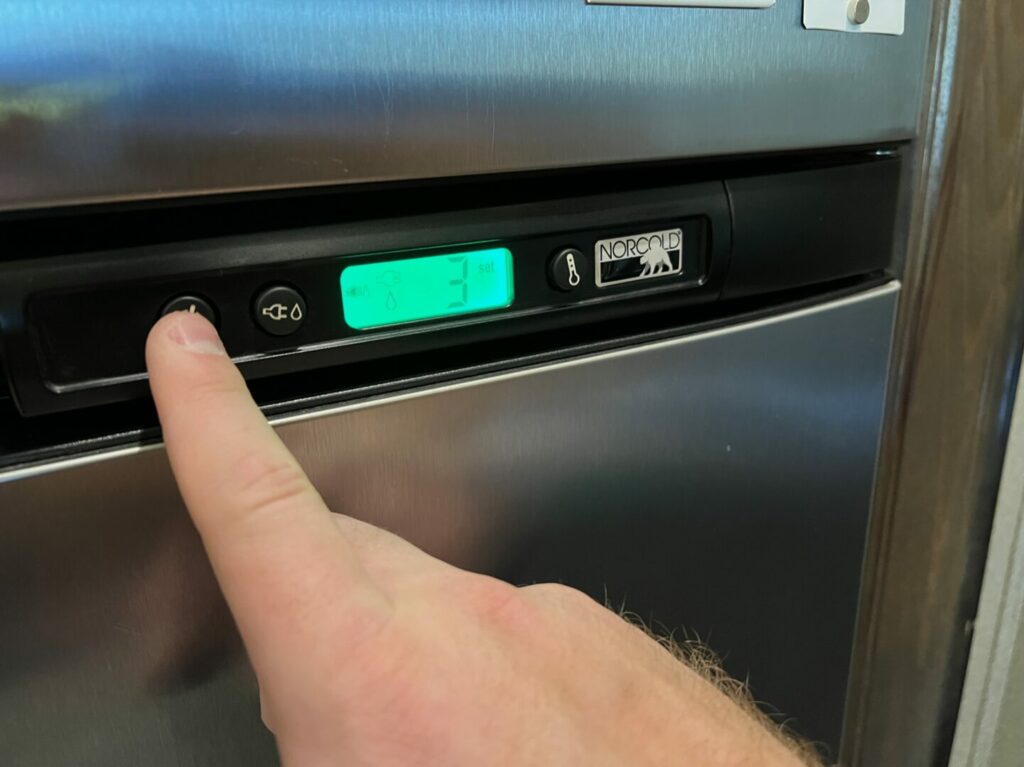
Residential RV Refrigerators
A residential RV refrigerator is the same type of refrigerator installed in a sticks-and-bricks house. It operates the same and has the same power because it’s a residential refrigerator (just installed in your RV). Unlike a 3-way RV refrigerator, a residential fridge will use AC power all the time. This means it needs a constant supply of power–and a lot of it. If you boondock often, you must have a significant battery bank to keep your residential fridge running. It also uses a compressor to cool food rather than absorption like a 3-way RV refrigerator.
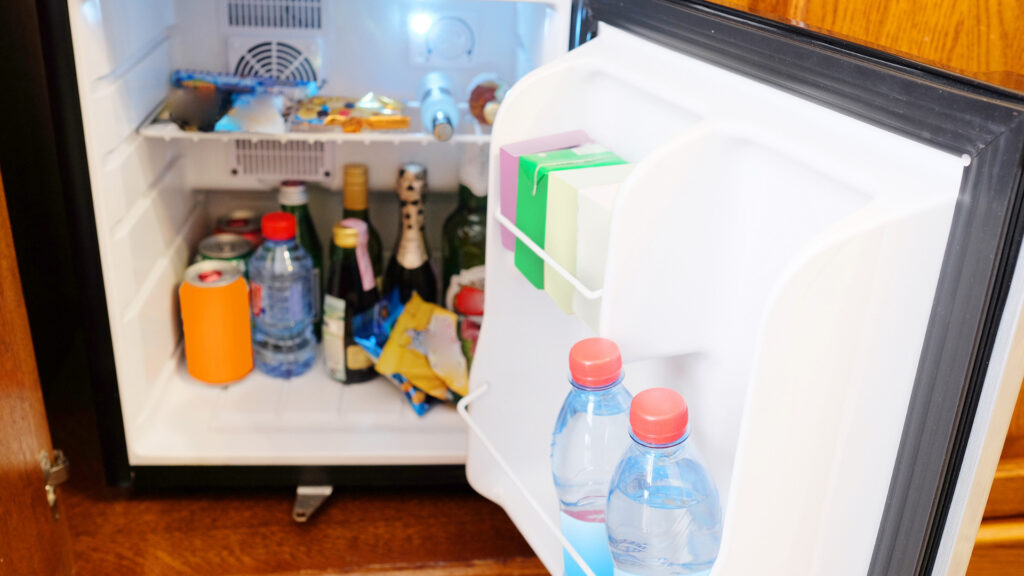
How 3-Way RV Refrigerators Work While Driving
On travel days, you have to decide how to keep your food cold. If you don’t have a fully stocked fridge, you can transfer your food to a cooler and get on your way. However, that isn’t the most convenient option.
Three-way refrigerators need propane or DC power to operate while driving. This means you have to leave on your propane while traveling down the road or switch to DC power from the RV batteries.
Is It Dangerous to Drive with Your RV Fridge on Propane?
Yes. Do people still do this? Yes. It’s more likely to keep your food cold on long travel days, so people are willing to take the risk.
However, there are dangers of driving with your propane on. If you’re going to risk driving with your RV fridge on, you should be aware of the most significant risks.
Dangers of Driving with Your Propane On
Driving with your propane on is kind of like driving without your seatbelt. You’ll probably make it to your destination without incident, but if you’re in an accident, you’ll be in big trouble.
An accident could damage the pipes, which would cause them to ignite. Propane is highly flammable. This is also why some states prohibit you from entering a gas station with your propane turned on. At fueling stations, gas fumes may reach your propane pilot lights and ignite.
What does this mean exactly? If you’re in an accident and the propane ignites, you could lose everything. The RV could literally blow up, endangering you and any other people nearby. And if something happens at a gas station, you’ll be sure to make the nightly news.
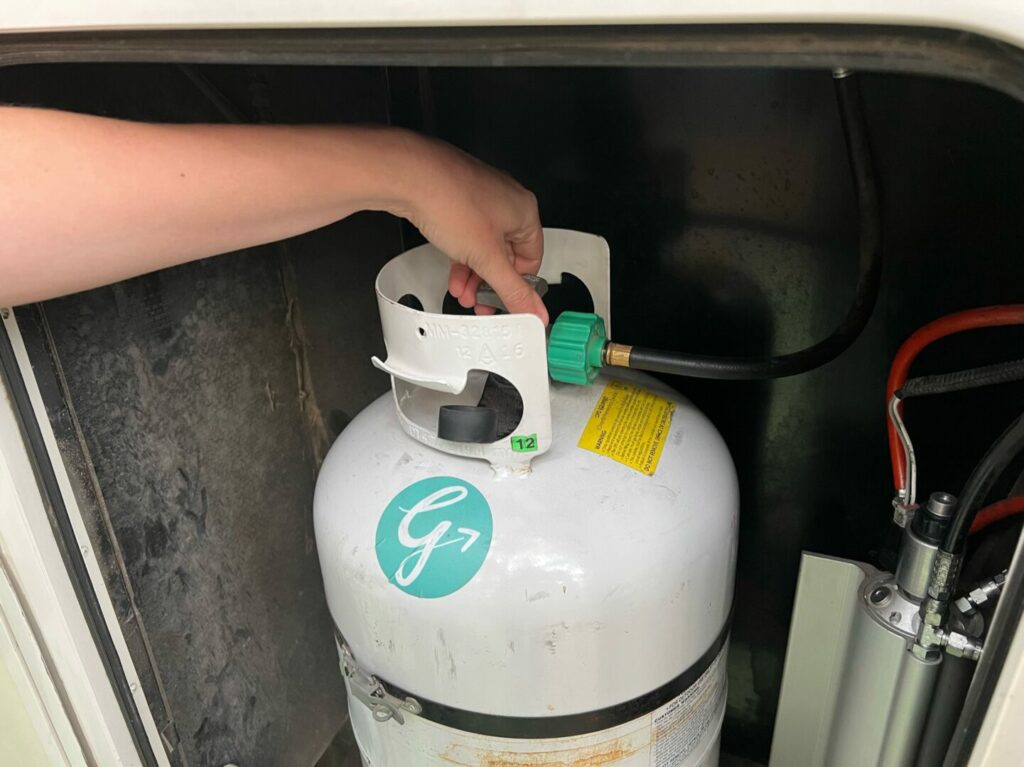
How Long Will an RV Fridge Stay Cool While Driving?
You can keep your 3-way RV refrigerator cooler by taking appropriate steps before traveling. First, turn the fridge on its coldest setting the night before. Don’t open the refrigerator on travel days. Instead, use a cooler for snacks and lunches.
Also, try not to open the fridge the morning of your travel day too often. Keep the cool air inside the refrigerator. Finally, pack the fridge full if you can. By packing foods tightly together, they’re more likely to remain cold for longer. Your food should be safe for several hours, certainly long enough to travel from one campsite to the next.
In Short: Keep Your Propane Off and Fridge Shut on Travel Days
Even without any energy source, your 3-way RV refrigerator should keep food cold long enough for you to reach your destination. The dangers are too great to leave your propane turned on.
Keep the refrigerator doors shut until you are hooked up to AC power or battery power or until you’re at a safe place to turn on the propane. It’s unlikely that you’ll have an accident and blow up your RV, but do you want to take that risk?




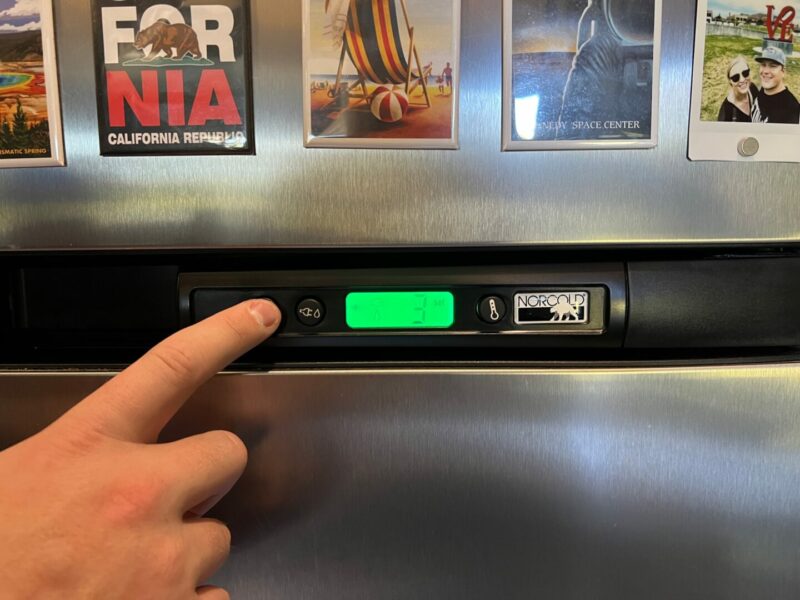
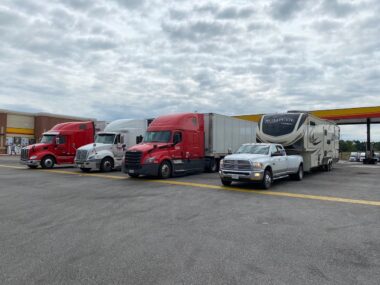

Thanks, ignorantly, never considered this.